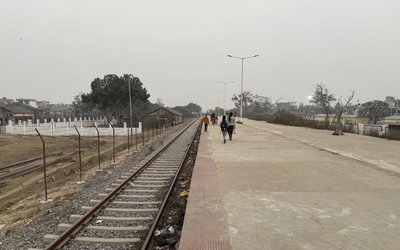Nepal’s aspiration to become a middle-income country and to attain the Sustainable Development Goals by 2030 rests on how much it will invest in its young people, including teenage girls, which is the theme of this year’s World Population Day (11 July, 2016).
With the largest proportion of young people in its current demographic structure, Nepal is poised to reap a demographic dividend – the accelerated development that can arise when a population has a relatively large proportion of working-age people coupled with effective human capital investment. Even for this to happen, we need to shine the light on why investment in young people, particularly teenage girls, is essential.
How fast Nepal can graduate from a Least Developing Country category and how much the country stands to gain from the current demographic window of opportunity depends on how much is invested in the empowerment, education, life skills and health and well-being of teenagers and particularly teenage girls.
Across Nepal, there are more than six million teenagers of which about half are girls -- one fourth of the country’s total population. That equals to over three million opportunities for development.
However, many teenage girls, particularly in remote areas, face more and greater challenges than their male counterparts.
In many remote areas across Nepal, a girl who reaches puberty is often deemed by her family and community as ready for marriage, pregnancy and childbirth. She may be married off and forced to leave school. She may suffer a debilitating condition from delivering a child before her body is ready for it. She may be denied her human rights.
Without education, in poor health, and with little or no control over her own body, her future can be derailed, and her potential may never be realized. The challenges and obstacles faced by teenage girls multiply if they belong to the Dalit or marginalized communities, live in remote villages and are from poor households.
But when teenage girls across Nepal have the power, the means and the information to participate in decision making process that affects their lives, they are more likely to realize their full potential and become a positive force for change in their homes, communities– indeed for their country.
Policies and investments in education and health that empower teenage girls and create economic conditions that lead to decent jobs later can quite literally be the determining factor in whether the country progresses.
The new 2030 Agenda for Sustainable Development is an unprecedented opportunity for teenage girls to claim their rights, fulfill their responsibilities, realize their aspirations and transform our world. When we invest in the health and education of young people, especially teenage girls, and create opportunities for them to realize their full potential, they are also better positioned to realize the demographic dividend, which can help Nepal achieve a high economic growth to combat poverty and ensure prosperity.
Thus Nepal’s progress towards the attainment of Sustainable Development Goals and graduation from a LDC country depends on how well we support and invest in teenage girls.
Giulia Vallese is a country Representative for Nepal, United Nations Population Fund (UNFPA). Excerpts of her statement issued for World Population Day.

Giulia Vallese
Ms. Vallese is UNFPA Representative to Nepal
- Women and girls in Nepal are still suffering from obstetric fistula
- May 23, 2016
- World Population Day 2015More Than Ever Relevant to Nepal
- Jul 11, 2015
- Investing in Young People’
- Jul 15, 2014
- AP Population Conference
- Sep 02, 2013
- AP Population Conference
- Aug 31, 2013














